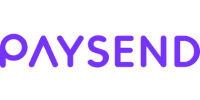The best, fastest & cheapest ways to send money to Ghana
Compare money transfer services and find the cheapest and easiest ways to make money transfers to Ghana.
Learn how to secure the best GHS exchange rates at the lowest transfer fees, ensuring a smooth and easy transfer process.
If you just need the best service for GHS transfers, it is Wise. Out of 8 companies tested that support GHS, they appeared 100% of the time as the top-rated provider in our comparisons.
Otherwise, keep reading for expert tips, top GHS transfer deals, and everything you need to know about transferring money to Ghana.
Send money to Ghana
"Over 16 million customers use Wise, mostly for their excellent mobile app, transparent fee structure & use of mid-market rates. Now increasingly used for larger transfers."
"Over 16 million customers use Wise, mostly for their excellent mobile app, transparent fee structure & use of mid-market rates. Now increasingly used for larger transfers."
"Over 16 million customers use Wise, mostly for their excellent mobile app, transparent fee structure & use of mid-market rates. Now increasingly used for larger transfers."
"Xe has over 30 years of currency exchange experience, and is one of the most reputable names on the market. 200 countries, 100 currencies, & funds often received in seconds."
"Xe has over 30 years of currency exchange experience, and is one of the most reputable names on the market. 200 countries, 100 currencies, & funds often received in seconds."
"Xe has over 30 years of currency exchange experience, and is one of the most reputable names on the market. 200 countries, 100 currencies, & funds often received in seconds."
"Over 16 million customers use Wise, mostly for their excellent mobile app, transparent fee structure & use of mid-market rates. Now increasingly used for larger transfers."
"Over 16 million customers use Wise, mostly for their excellent mobile app, transparent fee structure & use of mid-market rates. Now increasingly used for larger transfers."
"Over 16 million customers use Wise, mostly for their excellent mobile app, transparent fee structure & use of mid-market rates. Now increasingly used for larger transfers."
"Revolut has 50+ million customers globally. You can hold up to 36 currencies in the app and send money quickly in 70+ currencies to 160+ countries."
"Revolut has 50+ million customers globally. You can hold up to 36 currencies in the app and send money quickly in 70+ currencies to 160+ countries."
"Revolut has 50+ million customers globally. You can hold up to 36 currencies in the app and send money quickly in 70+ currencies to 160+ countries."
"24/7 live chat support provided in six languages. Special first transfer rates available, with airtime topup supported to many countries in Africa, Asia and South America."
"24/7 live chat support provided in six languages. Special first transfer rates available, with airtime topup supported to many countries in Africa, Asia and South America."
"24/7 live chat support provided in six languages. Special first transfer rates available, with airtime topup supported to many countries in Africa, Asia and South America."
"Xe has over 30 years of currency exchange experience, and is one of the most reputable names on the market. 200 countries, 100 currencies, & funds often received in seconds."
"Xe has over 30 years of currency exchange experience, and is one of the most reputable names on the market. 200 countries, 100 currencies, & funds often received in seconds."
"Xe has over 30 years of currency exchange experience, and is one of the most reputable names on the market. 200 countries, 100 currencies, & funds often received in seconds."
"Xoom, a PayPal service, allows you to send money in more than 160 countries. You can send cash for over-the-counter pickup or home delivery, as well as send by bank transfer or debit card."
"Xoom, a PayPal service, allows you to send money in more than 160 countries. You can send cash for over-the-counter pickup or home delivery, as well as send by bank transfer or debit card."
"Xoom, a PayPal service, allows you to send money in more than 160 countries. You can send cash for over-the-counter pickup or home delivery, as well as send by bank transfer or debit card."
"Sendwave is trusted by over 1 million users across the US, UK, Canada and EU. 24/7 support is available online and via the app."
"Sendwave is trusted by over 1 million users across the US, UK, Canada and EU. 24/7 support is available online and via the app."
"Sendwave is trusted by over 1 million users across the US, UK, Canada and EU. 24/7 support is available online and via the app."
"Paysend has transparent fees and rates, with transfer sent within seconds to your recipient's bank. They also have global 24/7 support for any enquiries, and bank-level security."
"Paysend has transparent fees and rates, with transfer sent within seconds to your recipient's bank. They also have global 24/7 support for any enquiries, and bank-level security."
"Paysend has transparent fees and rates, with transfer sent within seconds to your recipient's bank. They also have global 24/7 support for any enquiries, and bank-level security."
"Moneygram is a well established service with over 80 years in the sector. They support over 200 countries worldwide and have over 440,000 retail locations."
"Moneygram is a well established service with over 80 years in the sector. They support over 200 countries worldwide and have over 440,000 retail locations."
"Moneygram is a well established service with over 80 years in the sector. They support over 200 countries worldwide and have over 440,000 retail locations."
How to get the best rate when sending money to Ghana
Always compare rates
Don't pay more than you have to. Use our live comparison tool to make sure you aren't missing the best GHS rates.
Choose a provider
Select the provider that offers you the most GHS and fits your needs.
Click, sign up & transfer
Follow the steps & make your transfer. Your GHS will soon be on the way.
Wise: The best way to send money to Ghana
We’ve tested 8 companies offering services in Ghana, and Wise stood out as the best money transfer company to Ghana.
They offer low fees of just $72.25 and 0.06% markup on GHS exchange rates, and fast transfer speeds.
Wise offers an ideal combination of features, speed, and cost for GHS transfers.
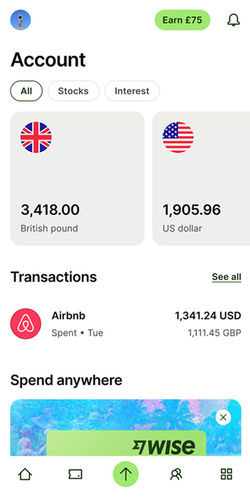
Cheapest way to send money to Ghana: WorldRemit
If you want to make the most of your GHS transfer, the cheapest way is to use WorldRemit and pay for your transfer with a bank transfer.
With just $0 in fees and 0.09% markup, WorldRemit is 0% cheaper than the next best option.
With Wise, if you were to send 7,000 USD to GHS, your recipient would get 77,000 Ghan Cedi, this is more than with other providers on our list.
*Based on 7,000 USD transfer.
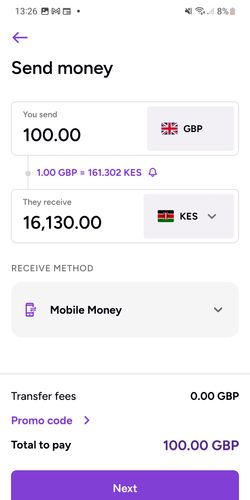
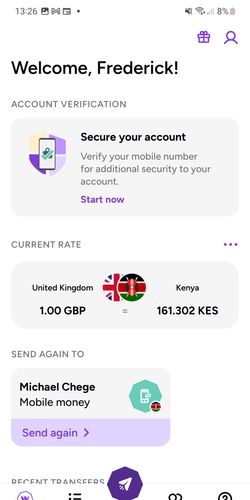
Fastest way to send money to Ghana: Xe
Our data shows that Xe is the fastest way to transfer GHS right now.
With Xe, the transfer time to Ghana is minutes - 24 hours (for a $7,000 transfer).
Xe charges $0 in fees on $7,000 transfer and adds a 1.6% markup.
The ‘fastest’ way to transfer money to Ghana includes the transfer amount, deposit method, and transfer and withdrawal times.
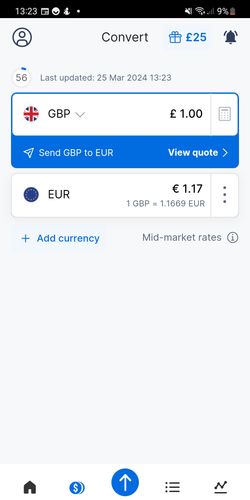
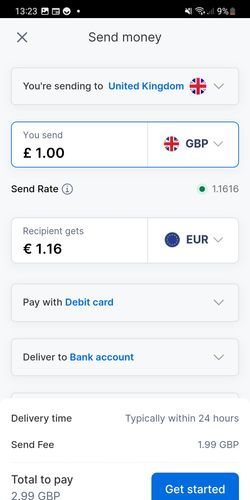
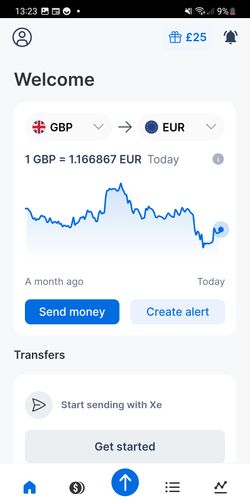
The easiest way to send money to Ghana: Wise
They offer transparent fees, charging $72.25 per transfer with 0.06% markup added to the GHS rate.
Getting started with Wise takes less than 3 minutes, making it a fast, affordable, and user-friendly choice for sending Ghan Cedi.

Consider this before sending money to Ghana
Don't settle for the first option. Always compare ways to send money to Ghana to find out about fees, speed, and reliability.
Our analysis included 8 providers that operate in Ghana.
Through this, you get a comprehensive view of all the options you have when sending money to Ghana.
Sending large amounts of money to Ghana
Sending large amounts to Ghana can be expensive. You should consider the exchange rate, transfer limits, customer service, safety, company experience with large transfers, and any legal requirements in Ghana.
In this case, Wise ticks all the boxes. Out of 8 money transfer companies serving Ghana, Wise came on top as the highest-rated company for GHS transfers.
Whether you are buying a property in Ghana, funding your education, having a destination wedding, or just need to send a lot of GHS, we recommend opting for a specialized provider such as Wise.
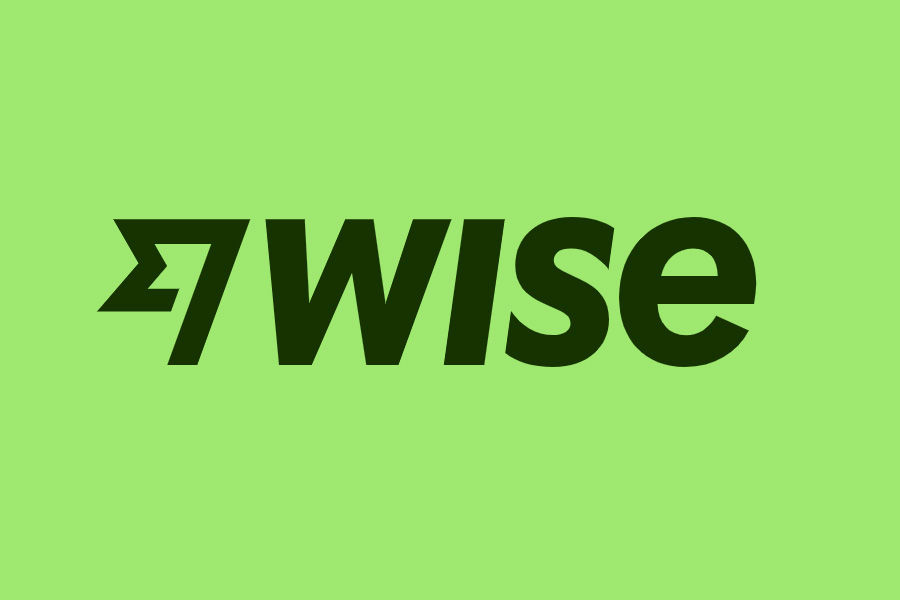
Understanding the costs involved when moving money to Ghana
When calculating the cost of money transfers to Ghana, here's what really matters: the country of origin, amount, payment method, fees, and the markup on the GHS exchange rate.
Exchange rate markup
This is a percentage added on top of the "real" GHS rate (known as the mid-market rate).
Wise, for example, offers the best exchange rate. It adds 0.06% markup to the USD-GHS exchange rate (11.0104 GHS - 0.06% per US Dollar).
Transfer fees
These are fixed and/or percentage fees added for the service when sending money to Ghana.
Let's imagine you want to send $7,000 from the US to Ghana.
After analyzing 8 companies supporting Ghan Cedi, we found WorldRemit to offer the lowest fees ( $0 in fees and 0.09% markup).
However, exact fees vary by deposit method and the service, for example:
Bank transfers vary from $0 to $490.00000000000006
Debit cards range from $0 to $0
Credit card fees vary a lot, mainly due to cash advance fees and/or additional fees from your credit card provider.

How to get the best GHS exchange rate for transfers to Ghana
An exchange rate represents the value of the Ghan Cedi (GHS) relative to another currency. Since it fluctuates continuously, the rate you get directly affects the amount of GHS you receive.
Recent trends in GHS exchange rates:
The average rate was 11.0044 Ghan Cedi per US Dollar, with a high of 11.0424 GHS/USD and a low of 10.9811 GHS/USD.
During the past week, the GHS/USD exchange rate experienced some fluctuations. Ensuring you exchange or convert money at a higher rate would result in more GHS received.
Wise is our top recommendation for sending GHS as it offers an exchange rate that is 0.06% above the mid-market rate, which is 0% cheaper than the next best option.
Secure the best GHS exchange rates with our rate alerts
Sign up for our rate alerts, and we'll notify you when it’s the best time to send GHS!
Payment methods available for money transfers to Ghana
The way you fund your transfer to Ghana will impact the speed, cost, and amount of GHS your recipient receives.
Bank transfers
Bank transfer deposits are a common and reliable funding method for sending GHS, offered by most services covering Ghana.
While bank transfers are typically more affordable, it may take up to 3 business days for the GHS to arrive in Ghana.
In our testing of 8 providers, WorldRemit appeared as the cheapest option for bank transfers to Ghana, charging $0 per transfer with a 0.09% markup (0% cheaper than the next cheapest money transfer company).
Avoid using wire transfers to Ghana over the SWIFT network, as they are slower and more expensive due to the bank intermediaries on the way to Ghana. Instead, choose ACH or your local network option.

Credit cards
A credit card deposit is another option for GHS transfers.
Based on our comparison of 8 companies serving Ghana, there are a few available options.
To get the best deal, we as CC transfer fees and rates can vary a lot depending on where you are.
CC deposits are usually more expensive when sending Ghan Cedi, so if you can, opt for a bank transfer deposit or a debit card deposit.
Money transfer to Ghana is an international transaction.
Your credit card company may apply a cash advance fee and higher interest rates for international payments to Ghana. We recommend avoiding credit cards when sending money to Ghana.

Debit and prepaid cards
Debit cards are typically faster but more expensive than bank deposits, with most GHS transfers completed within a few hours.
We recommend using Xe for debit or prepaid card deposits.
With Xe, you’ll pay a 1.6% markup on the GHS rate and $0 in fees when depositing money via the card. This is 0.06% cheaper than using the next cheapest option for transferring money to Ghana.

How we analyze the market
We track the cost, speed, and product offerings of the leading money transfer services available in Ghana.
Our comparison engine and algorithms evaluate providers based on over 25 factors, including transfer fees, ease of use, exchange rates, mobile apps, transfer times & customer support.
We also consider how these services are rated on platforms like TrustPilot, AppStore, and Google Play, giving you a comprehensive view of what to expect.
This thorough analysis helps you get the best available deal - every time you want to move money to Ghana.
We also provide unbiased and detailed reviews of all the top money transfer companies. You can use these reviews to find the best service for your needs when sending money to Ghana
For a deeper understanding of our commitment to integrity and transparency, we invite you to read our editorial policy and review methodology.

Related transfer routes
Send money from Ghana
Send money to Ghana
FAQs
Find answers to the most common questions on our dedicated FAQ page.
How much money can I transfer to Ghana, and are there any limits?
Are there tax implications when sending funds to Ghana?
What are the typical fees and exchange rates for sending GHS?
How long will it take for my money to reach Ghana?
Can I schedule regular GHS transfers?
What currency is used in Ghana?
Can I send GHS from any country?
How can I track my money transfer to Ghana, and what should I do if something goes wrong?
Is it better to use my bank for GHS transfers?
Can I use MoneyTransfers.com to money transfers?
Useful links for Ghanaians abroad
Contributors












